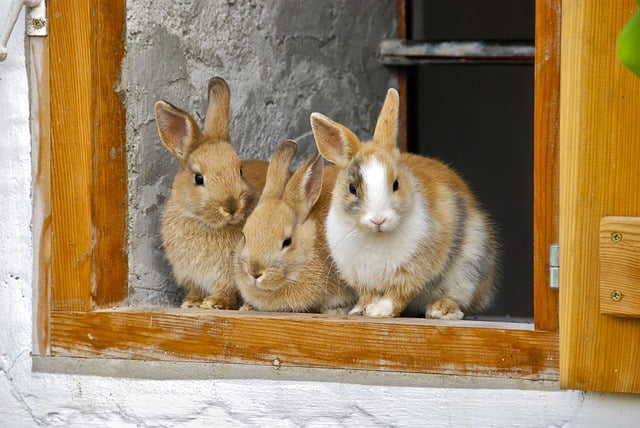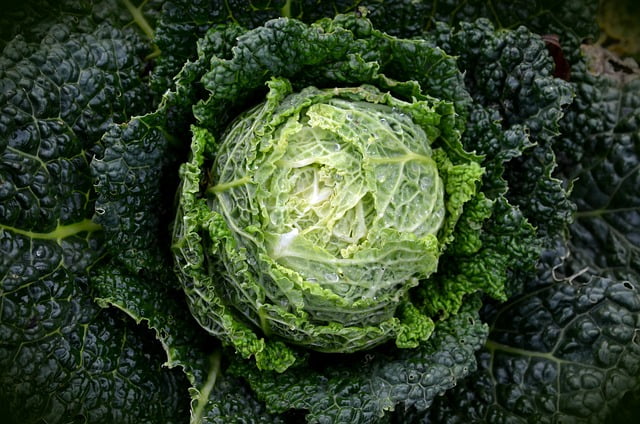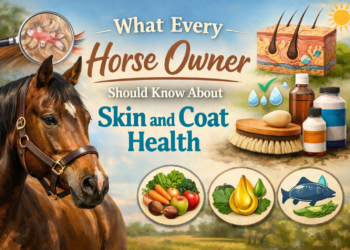Rabbits are known for their love of vegetables, and as a rabbit owner, you may be wondering if it’s safe to feed them savoy cabbage. The good news is that savoy cabbage is generally safe for rabbits to consume as part of a balanced diet. However, it’s important to introduce cabbage slowly and in moderation to avoid any digestive issues. In this comprehensive guide, we will explore the safety of feeding rabbits savoy cabbage, the nutritional benefits it offers, and some tips for incorporating it into their diet.

Is Savoy Cabbage Safe for Rabbits?
When it comes to feeding rabbits vegetables, not all options are created equal. However, savoy cabbage is considered safe for rabbits to eat. It is important, though, to introduce any new food gradually to prevent stomach upsets. Rabbits rely on bacteria in their guts to digest their food, and sudden dietary changes can disrupt this delicate balance. By introducing savoy cabbage slowly, you give your rabbit’s gut time to adapt and ensure that they can digest it properly.
The Rabbit Diet: An Overview
Before diving into the specifics of feeding savoy cabbage to rabbits, let’s take a closer look at their natural diet. Rabbits are herbivores, which means they primarily eat plants. In the wild, their diet consists of grasses, leaves, tree barks, and even roots. As pets, rabbits can also enjoy a variety of vegetables, including cabbage. It’s essential to provide a balanced diet that includes a mix of hay, fresh vegetables, and pellets to meet their nutritional needs.
Nutritional Benefits of Savoy Cabbage for Rabbits
Savoy cabbage offers several nutritional benefits for rabbits. It is a rich source of vitamins, minerals, and fiber, which are vital for their overall health. Here are some key nutrients found in savoy cabbage:
- Vitamin B6: Savoy cabbage contains vitamin B6, which helps rabbits break down proteins and supports normal muscle function.
- Calcium: Rabbits constantly regenerate their teeth, and calcium is crucial for maintaining healthy teeth. Savoy cabbage provides a good amount of this essential mineral.
- Potassium: Potassium plays a vital role in the nervous system, and savoy cabbage is a great source of this nutrient.
- Vitamin K: While most pet rabbits don’t need extra vitamin K in their diet, it is important for breeding sows. Savoy cabbage contains vitamin K, which contributes to a healthy pregnancy.
- Other nutrients: Savoy cabbage also contains smaller quantities of magnesium, fiber, phosphorous, zinc, and vitamin E, all of which contribute to a well-rounded diet for rabbits.
Introducing Savoy Cabbage to Your Rabbit
When introducing savoy cabbage to your rabbit for the first time, it’s crucial to start with small quantities and gradually increase the amount. This gradual introduction allows their gut to adjust to the new food and helps prevent any digestive upsets. It’s also a good idea to monitor your rabbit closely after introducing savoy cabbage to ensure they tolerate it well.
How Much Savoy Cabbage Can Rabbits Eat?
While savoy cabbage is safe for rabbits to consume, it should only make up a small portion of their overall diet. Leafy green vegetables, including cabbage, should constitute approximately 15% of a rabbit’s diet. The rest of their diet should consist of hay, pellets, and water. It’s important not to overfeed savoy cabbage or any other vegetables to avoid potential health issues.
Potential Risks and Precautions
While savoy cabbage is generally safe for rabbits, there are a few risks and precautions to keep in mind:
- Gas and bloating: Some rabbits may experience gas and bloating after consuming cabbage. This can occur if they eat too much cabbage too quickly. If your rabbit shows signs of digestive discomfort, such as diarrhea or bloating, it’s best to remove cabbage from their diet and consult a veterinarian if the symptoms persist.
- Thyroid issues: Feeding rabbits excessively high amounts of cabbage for an extended period can potentially lead to thyroid issues. However, this is unlikely to occur unless your rabbit’s diet consists almost entirely of cabbage. As long as cabbage is part of a varied and balanced diet, the risk of thyroid problems is minimal.
- Goitrogenic properties: Cabbage, including savoy cabbage, contains goitrogenic compounds that can interfere with thyroid function. However, the levels of these compounds in cabbage are generally not high enough to cause harm. Feeding cabbage in moderation, along with a variety of other vegetables, poses no significant risk to your rabbit’s thyroid health.
Savoy Cabbage vs. Other Cabbage Varieties
When it comes to feeding rabbits cabbage, not all varieties are created equal. Savoy cabbage, with its dark green and leafy appearance, is a preferable choice compared to other cabbage varieties. It contains higher levels of vitamins and minerals, making it more nutritious for rabbits. While white and red cabbage are safe to feed in moderation, they don’t offer the same nutritional benefits as savoy cabbage.
Other Vegetables for Rabbits
If your rabbit doesn’t enjoy or tolerate savoy cabbage, there are plenty of other vegetables they can enjoy. It’s important to offer a variety of vegetables to ensure a well-rounded diet. Some suitable vegetable options for rabbits include:
- Leafy greens: Lettuce, spinach, kale, and Swiss chard.
- Herbs: Parsley, cilantro, basil, and dill.
- Root vegetables: Carrots, radishes, and turnips.
- Cruciferous vegetables: Broccoli, cauliflower, and Brussels sprouts.
Remember to introduce new vegetables gradually and monitor your rabbit’s response to ensure they tolerate them well.

Conclusion
In conclusion, savoy cabbage can be a healthy addition to a rabbit’s diet when introduced in moderation. It offers a range of essential nutrients and can contribute to your rabbit’s overall well-being. However, it’s important to start with small quantities and gradually increase the amount to prevent digestive issues. As with any new food, monitor your rabbit closely after introducing cabbage and consult a veterinarian if you notice any adverse reactions. By providing a balanced diet that includes a variety of vegetables, hay, and pellets, you can ensure your rabbit receives the necessary nutrition for a happy and healthy life.











